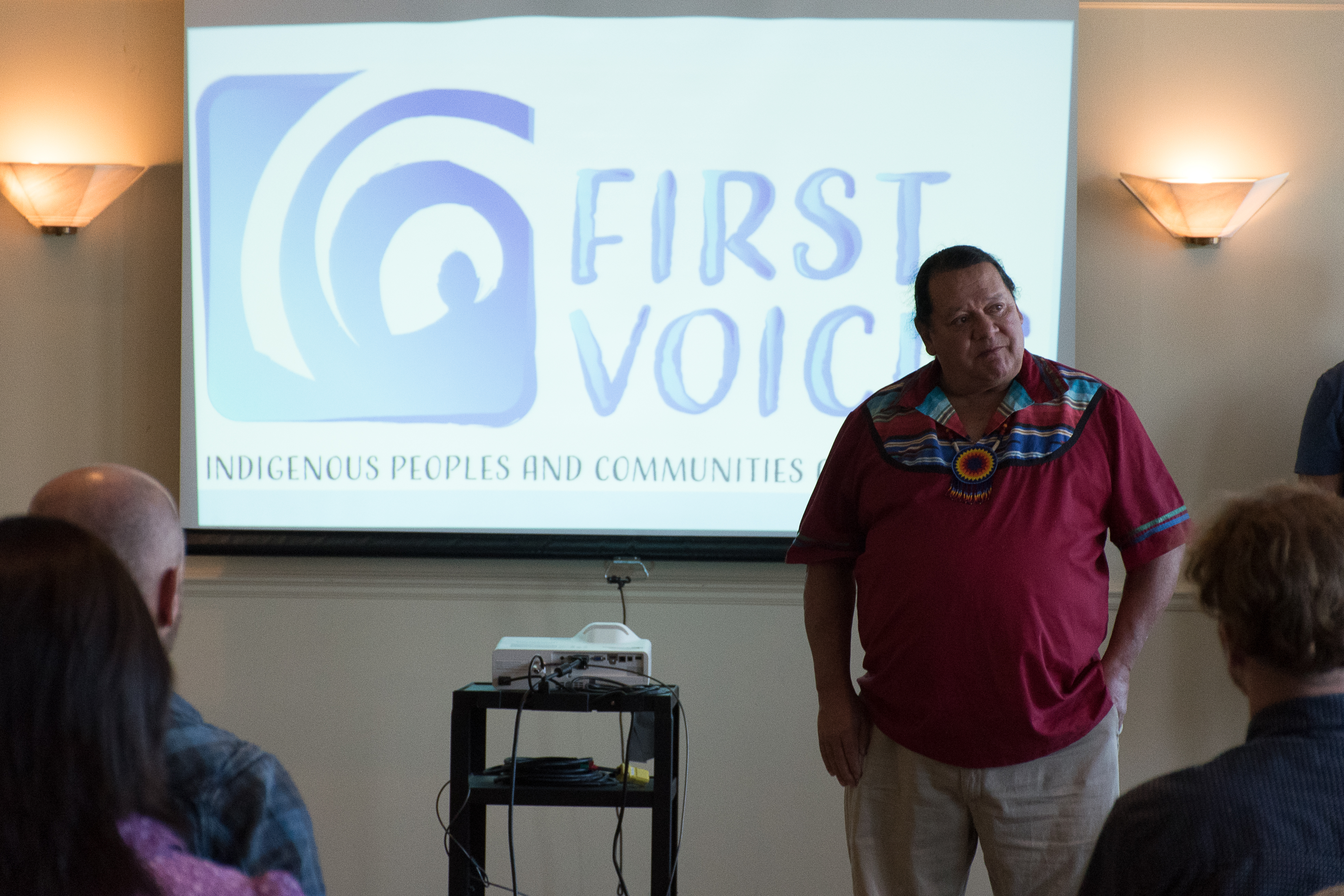The speakers discussed standing in solidarity North Dakota Access Pipeline
Concordia University kicked off “First Voices: Indigenous Students and Community at Concordia,” an aboriginal awareness week, with an opening ceremony on Jan. 30, featuring a number of prominent indigenous speakers.
The ceremony, which was held in Concordia’s Hall building, is the first of a number of events, panel discussions and activities scheduled for this week. The awareness week was organized by First Voices Concordia, an on-campus organization aimed at increasing support and visibility for First Nations students.
The event began with traditional indigenous music, performed by the Travelling Spirit Drum Group, and opening remarks from Charlie Patton, an elder of Kahnawake, a Mohawk territory near Montreal. The First Nations event was open to all Concordia students and staff, as well as the general public.
While his opening remarks discussed a number of issues faced by all indigenous communities in North America, there was a focus on the ongoing struggle of North Dakota’s Standing Rock Sioux tribe. The tribe has spent nine months protesting the construction of the North Dakota Access Pipeline, an energy project protestors claim will encroach upon the tribe’s sacred burial grounds and threaten their sole source of water.
“We don’t appreciate our water, and we don’t give thanks for our water,” Patton said, reminding the audience to be grateful for the resources available to them. Patton said he also worries about the safety of the water available to First Nations communities in Canada.
Next, the audience welcomed Stacey Huff, a First Nations woman who participated in the protest in North Dakota from July to December. Although Huff is a Canadian from the Mohawk tribe, she said she felt it was her duty to stand in solidarity with the Sioux tribe.
She was visibly emotional when describing a particularly violent instance of police brutality that the protesters—who prefer to be referred to as water protectors—were subjected to. Earlier that day, Huff had injured her leg, and was unable to retaliate or aid her fellow water protectors.
“One day was bad… They came and surrounded us all the way around,” said Huff, describing the mass arrest she witnessed. “I was up there, I yelled and cried and I couldn’t do [anything]. They were grabbing us, chasing us—it was like chaos. It was terrible, and I think, for myself, that was the worst day. A hundred and forty-eight people got [arrested] that day.”
She also implored those who were unable or unwilling to join the protest to help by divesting from banks funding the pipeline, which include TD, Scotiabank, and RBC.
Over the next week, Concordia will be hosting a number of events as part of the First Voices awareness week, including a community discussion on indigenous issues on Wednesday, a dreamcatcher workshop on Thursday and a closing social featuring traditional Aboriginal music, dance and food on Friday.




